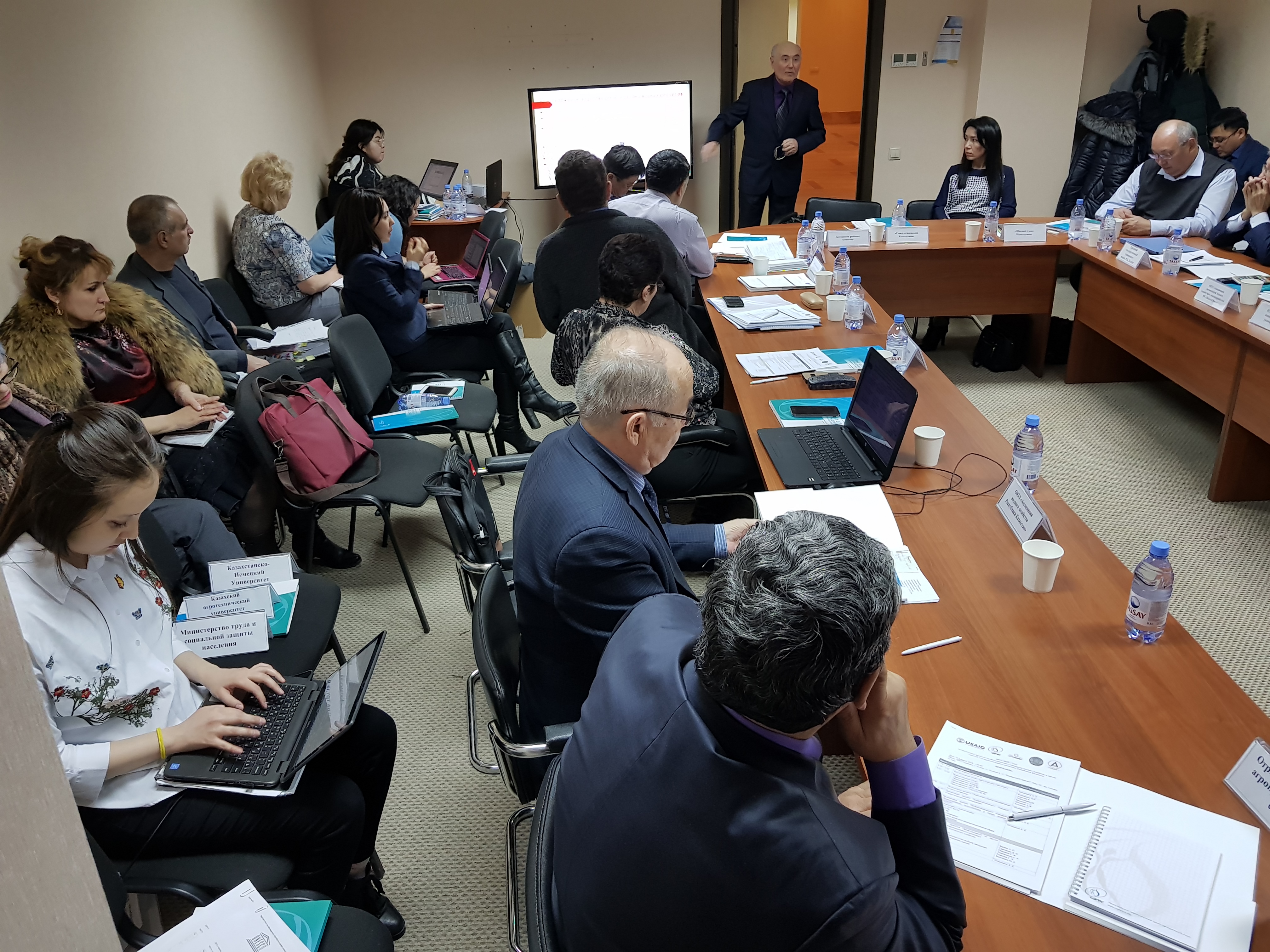
ASTANA. On February 28 the Executive Board of the International Fund for Saving the Aral Sea in Kazakhstan (EB IFAS), held a Roundtable on the discussion of the draft of professional standards on water management and other specialities of the Agro-industrial complex of the Republic of Kazakhstan. EB IFAS organised the event in cooperation with CAREC, and with the support of USAID “Smart Waters” project, it took place in the office of the national chamber of entrepreneurs of the Republic Kazakhstan "Atameken".
This meeting was held within the framework of a multi-partner project dedicated to the analysis and harmonisation of state’s educational standards for water professionals within the existing speciality "Water Resources and Water Use". It became the second event of the project and continued a series of seminars, roundtables and pieces of training organised by EB IFAS in Kazakhstan in 2016-2017 in cooperation with UNESCO, the OSCE, CAREC and USAID.
The primary objective of the event was to discuss the project of professional standards for agro-industrial complex and sectoral qualification framework on water management together with developers, government agencies, representatives of workers and employers associations. Involvement of all key stakeholders will contribute to improving the quality of training future specialists. As the deputy director of the EB IFAS in Kazakhstan Amirkhan Kenshimov mentioned, this roundtable is a significant milestone: "The professional standard is precisely the tool that allows building a reliable "bridge" between the labour market and the trained of qualified specialists».
Developed professional standards will be transferred to the Ministry of Labor and Social Protection of the Population of the Republic of Kazakhstan and the Ministry of Agriculture for passing mandatory government procedures. In the end, approved standards will serve as a basis for the development of educational programs and curricula of universities.
